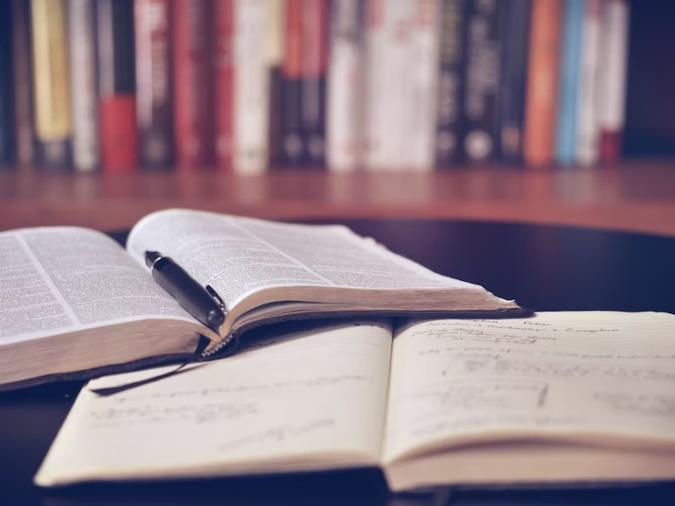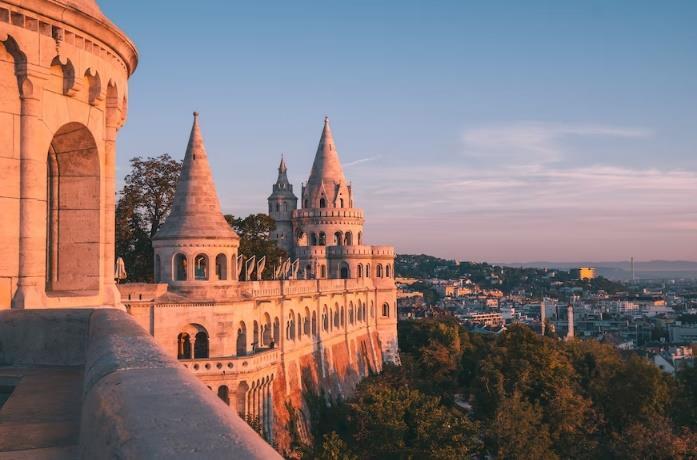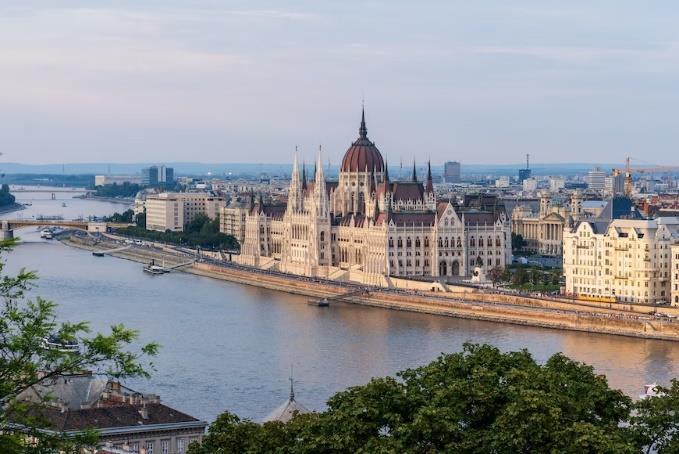
6 minute read
Cold War History Research Center
Since I have now finished my studies and have a relatively broad overview of which fields I'd
like to work in in the future, it wasn't surprising to me that I enjoyed the tasks given to me.
Therefore, the internship mostly confirmed to me my wish to work in the environmental sector
and made me further consider career options outside of the academia. I would say that the
most lasting impression from the internship were the people I met. I received a warm welcome
and loved the social atmosphere between the colleagues both in the office and outside.
Whenever I'm back in Budapest, I'll make sure to visit CEEWeb again!
Practical Advice
Looking for accommodation will be way easier during the summer, while during semester time,
many places are rented out for the entire semester only. In that case, the only alternative might
be Airbnb, which is more expensive than regular flats. I'd therefore recommend looking for
accommodation as early as possible, and if possible, to also complete the internship during the
summer.
Sofiia Kosourova, St. Antony's College, MPhil Russian and East European Studies,
in-person working
Work Projects
My main task during the internship was data
entry for the chronology the Cold War History
Research Centre has been working on for several
years. I was assigned a country and a time period
to base my document search on and was
required to present 20 pages of data every week.
From the start, the Centre gave specific
instructions on what sort of information and documents they were looking for in addition to the
guidance on how to use online and physical archives. For the first part of my placement, I
worked with online sources of the Open Society Archives website only due to the summer
closure of the physical archives. The experience of working with online archives proved to be
quite interesting as it allowed me to take a closer look at the country of my interest's history
during the Cold War. However, getting to work in the actual archives turned out to be more
exciting still as I got to explore original documents that were likely unique to the Open Society
Archives and do so in the beautiful CEU library. I would also attend meetings organised by the
Centre, in person as well as online, where we would discuss practical matters and Cold War
history itself. The internship supervisors were helpful throughout my time there and assisted in
solving any work- or living-related issues.
Daily Life
As I was tasked to produce a certain amount of
work weekly regardless of when and where I
worked, I had lots of flexibility during the
week. When I worked with online archives, I
would usually do so from a cafe, library, or the
place I was renting and whenever I felt most
productive. During the time when the OSA research room became available, I would go and
work there with original documents, which still left me some free time at the rest of the day.
I am lucky to have done this placement in person as Budapest has lots to offer - from charming
(and rather cheap) cafes and restaurants to galleries, museums, and cultural centres. So, in my
free time, apart from getting together with other interns from time to time, I would mostly
explore the city and its history. Places like the House of Terror are a must-visit for anyone
interested in history, and characteristic ruin bars are something I've rarely seen outside
Budapest.

Lasting Impressions
This internship was an exciting experience. Working with original sources did not only prove to
be complementary to my existing knowledge of Cold War history but also significantly enriched
my understanding of the era and made it less abstract. And working in the historic city of
Budapest only added to the feeling of being fully submerged in history. While my thesis is not
directly connected to the study of the Cold War, I am grateful this placement has given me a
chance to explore farther corners of my region's history, adding more depth to my knowledge
of it.

Practical Advice
As this placement did not offer a particularly
strict schedule, my main piece of advice to
future interns would be to make sure to come up
with a working schedule themselves as soon as
the internship starts. 20 pages per week may not
seem like a lot of work, and the city is indeed too
fascinating to spend all the time working in a library. But I found that dedicating 2-3 hours a day
during the week to archival work creates a good work-life balance, making sure that archival
work is still exciting and does not feel exhausting after a while, and allowing for plenty of free
time to go to museums, bars, etc. after work.
Since interns were not required to work at any particular location when working with online
archives, I'd also recommend trying and going to different libraries and cafes around the city -
for me this was a good way to both explore Budapest a bit more and turn at times monotonous
work into something to look forward to every day.
BA Politics, Philosophy, and Economics, First Year Undergraduate, a mixture of in-
person and remote working
Work Projects
My main role at the research centre was to collect and organise data about Romania between
the years of 1953 and 1968. I did this through accessing the online Open Source Archives and by
visiting their Budapest location in person. This way I was able to access a series of documents,
largely in French, and occasionally in English, that detailed events and trade in Romania during
this period. I collected the data that I found and organised it in a chronology document to show
the progression of events in Romania. These entries will be used to augment a publication done
by the research centre that shows events in all satellite states, and the USSR, during the Cold
War.
Daily Life
My internship was a mixture of online and in-person, though in the end I believe that I spent a
majority of my time working from home due to issues and delays with getting documents
delivered to the archive for in-person work. On days that I worked in the archives, I would
usually select a slot for midday and into the afternoon so that I could spend the morning
relaxing and getting ready to get to work. I would get a coffee and take the metro and walk to
the archives. This was a fairly simple procedure and didn’t take longer than 20 minutes. While
in the archive it would be silent work with the documents then taking extra photos of them to
reference at home while finishing the data collection later that day. On days where I would
work from home, I would usually start earlier and only break from meals. I would also take a
couple of hours off to explore the city a little bit. This could be going out for a meal, going to a
museum, or just going for a walk.
Lasting Impressions
In the end I did enjoy the experience of living in a new city and getting time to go around and
see it, find nice cafes, go to museums, etc. My lasting impression is of how demanding
academic research can be, albeit quite rewarding as well. I really enjoyed learning about events
in Romania within the time frame and putting them in chronological order. It showed patterns
and connections that wouldn’t have been possible to see otherwise. I am also proud that my work will be used to augment a new edition of a reference publication. This experience has
proven to me that I find this era very interesting and love to learn about the relations between
states.










